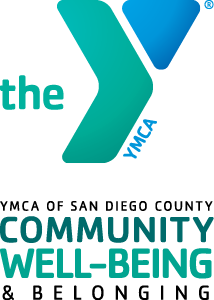MAKING THE DECISION
Deciding to begin counseling can be a big step for most individuals, couples and families. The searching often comes after an event that feels so overwhelming, a solution seems far away. Counseling works best when it is not consistently reactionary, so if you are experiencing some minor difficulties that do not seem to resolve on their own, it might be a good idea to start counseling at that point instead of waiting for a traumatic event. Counseling is often compared to seeking dental treatment. It’s best to get routine cleanings and fill cavities before you need a root canal. Here are six things to consider before starting counseling.
Why am I seeking counseling?
Some people are pressured by a partner, parent or employer to begin counseling and if that is the only motivating factor, it may be wise to dig a little deeper. Starting counseling for someone else is an external factor that may limit the impact. Engaging in the process because you want to, not because someone else told you to, is far more powerful. Digging deeper requires you to explore an internal motivating factor for seeking counseling (i.e. personal growth, decrease anxiety, increase connection toward others, etc.).
How do I manage painful emotions?
Seeking counseling is a courageous step toward self-discovery and connection with a stranger. During the course of counseling, painful emotions will arise and it is important to take inventory of how you typically manage your emotions. If you tend to manage pain and grief through substance use, self-harm, gambling or other self-sabotaging behaviors, then it is important to address this first in the counseling process. That may be a good goal for counseling so that there is a healthy coping strategy in place when a session does not go as planned or painful thoughts and emotions arise.
What Can I Afford?
Moving forward in this process means that you will have to make room in your budget because you value the service you are receiving. If you are using insurance, know what your copay is and consider the implications of a mental health diagnosis going into you or your partners medical record. If you do not want a diagnosis in your medical record, then paying out of pocket may be a good fit for you. Consider private practice and look for a counselor that belongs to a professional association. For instance, Marriage and Family Therapists who are members of the American Association of Marriage and Family Therapists (AAMFT) must follow a code of ethics, as well as best practices and research in the field. If you are looking for something more affordable, check your local universities as many of them have low-fee clinics. Of course, you can access affordable mental health services through the YMCA.
What Should I Look for in a Counselor?
There are several factors to consider when seeking out a therapist. Rapport and connection are the number one factors in clients who report their therapy is effective for them. It is also important that you find a counselor that understands process versus content. This is the difference between seeing a good friend who you vent to and discuss the happenings in your life and a therapist who can point out underlying patterns, subtext, defenses, family dynamics and processes that are going on underneath the surface. A therapist or psychologist that values your feedback and elicits how you are doing in the process is essential for relationship building. This ensures that you feel empowered and heard. Make sure the therapist has a deliberate practice that incorporates your feedback. Lastly, therapists are human with their own set of biases. While they attempt to be aware and manage them, they are going to make mistakes. Being able to work through that openly is healthy and expected.
Have I Sought Medical Help for My Problem?
Many people suffer from anxiety, depression, and mood swings, and spend money analyzing their lives only to find out they had a hormonal imbalance, vitamin deficiency, or other medical condition. Ruling out a medical condition is extremely important before beginning counseling. A good therapist can collaborate with your medical doctors, with your permission, to achieve the best possible outcome.
How Will I Know When I am Done with Therapy?
Therapy can be a lifelong process, however, for most it is not. If you are seeking specific results, then consider what they are before you start. Begin to think about what you want your life to look like at the conclusion of counseling. How do you want to feel? How do you want your relationships to be different? Discuss these desires with your therapist so that any unrealistic expectations can be discussed up front and you have a measurable goal in sight to determine the efficacy of your counseling.
Interested in other Mental Health Services?
Our clinical teams have extensive experience providing mental health services and online counseling to individuals, couples, families, children, and teens, covering a wide variety of topics. Learn more about our behavioral and mental health services.


